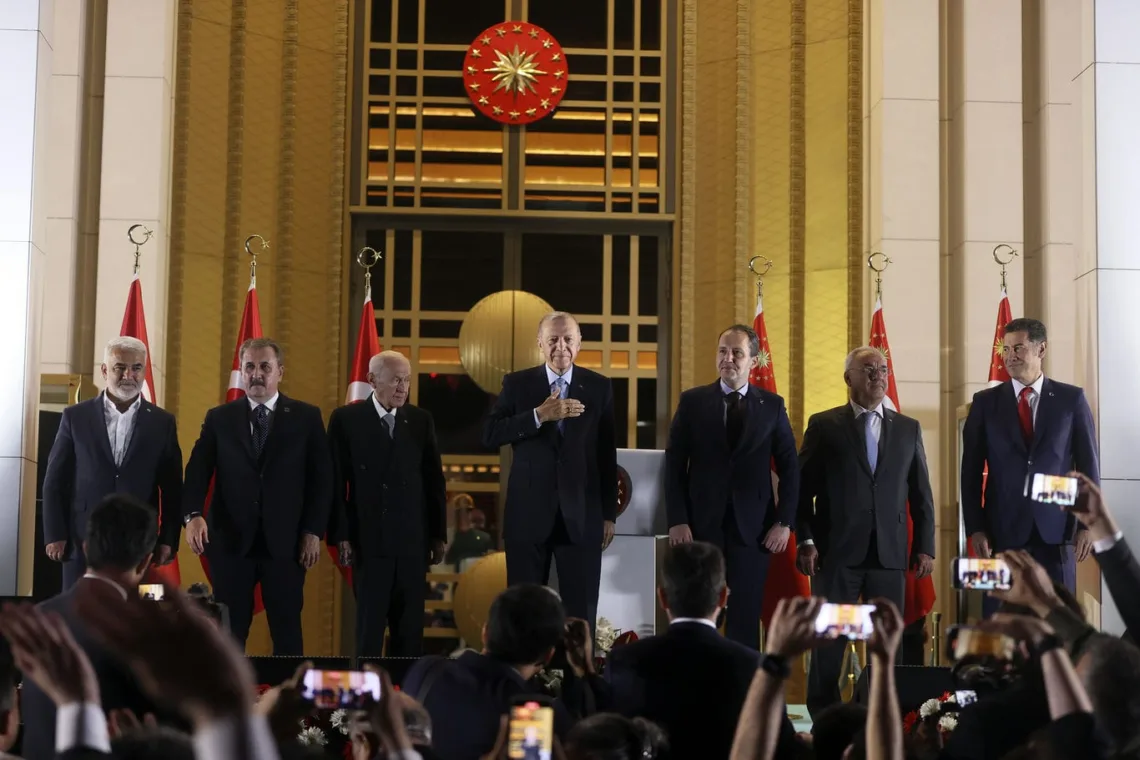Incumbent President Erdogan was, as expected, the winner of the second round of elections in Turkey, and will also be president for the next five years. What awaits him is described as an almost impossible task.
The presidential election was described as an election of destiny. Recep Tayyip Erdogan won in the end, but he may have a very tough task in meeting the demands and expectations placed on the Turkish president going forward.
Leading Turkey and trying to lift it up from today’s difficult economic, social and political situation, is expected to be extremely demanding.
NTB-TT-AP reports on the story on Sunday evening.
Here are seven things Erdogan may struggle with:
1. The economy
Inflation, a weak currency, high food prices and even higher housing costs have lowered the population’s standard of living. School fees, vital to the middle class who have often supported President Recep Tayyip Erdogan, have skyrocketed.
In October, Turkey’s inflation was as much as 85 per cent. The price increase in April was 44 per cent. Erdogan insists, despite all experts saying otherwise, that high interest rates lead to inflation and has pushed the central bank to cut interest rates.
Before the election, he allocated large public funds to increase minimum wages and pensions.
Erdogan is said to have asked his former finance minister, who enjoyed international respect, to return to his job. It may be a sign that he will pursue a more orthodox economic policy in the future.
2. Corruption
The worsening economic situation is partly due to widespread corruption, credits to private banks and nepotism. This has increased under Erdogan, according to the opposition.
The problems came to the fore during the handling of the earthquake disaster, which for many Turks confirmed how bad things are.
3. The aftermath of the earthquake
The great earthquake in eastern Turkey claimed at least 50,000 lives and left millions homeless. Many have left the area and live with relatives or in temporary housing further west in the country.
The authorities have received sharp criticism for the handling as reconstruction is expected to take many years.
Widespread corruption and lack of enforcement of building regulations are considered an underlying cause of many houses collapsing. Few are held accountable for this.
Over 300,000 buildings were damaged, and around 658,000 people lost their jobs as a result of the earthquake, according to the ILO. The earthquake caused direct damage of $34.2 billion, equivalent to 4 percent of Turkey’s GDP in 2021, according to the World Bank.
Erdogan has promised to build 319,000 homes by the end of the year. That will be difficult to repay.
4. The migrant situation
Millions of war refugees and migrants from neighbouring Syria live in the earthquake-affected areas. Their presence is also noticeable in western and central Turkey.
Before the second round of elections, opposition leader Kemal Kilicdaroglu promised to send 10 million migrants home within a year if he won power.
According to the UN and Turkish authorities, there are around 4 million refugees in Turkey, most of them Syrians.
Erdogan’s government has begun building thousands of brick houses in Turkish-controlled parts of northern Syria to encourage voluntary returns. Qatar supports a separate project that could resettle up to 1 million Syrians.
Erdogan is also working to improve relations with the Syrian president to ensure a safe return.
5. Foreign policy
Under Erdogan, Turkey has moved eastwards, away from Europe and the EU and towards both Russia and the Middle East.
Turkey has at times been regarded as a difficult NATO ally with its own agenda. Erdogan has maintained relations with Russian President Vladimir Putin, although they have not been particularly friendly.
With five new years in power, he can continue to try to mediate between Russia and the West, as Turkey has done through the important agreement on the export of Ukrainian grain.
Turkey has blocked Sweden’s NATO membership, but discussions continue. Erdogan has not said exactly what he will do after the election, but it is considered unlikely that he will maintain the veto after June 1. That is when Sweden’s new terrorism legislation comes into force.
6. The local elections in 2024
The winner of the election will have to deal with the crisis-stricken economy. But it is important not to go too hard with the necessary reforms.
Turkey will hold local elections in April next year. The governing parties risk losing at the polls if they introduce measures that worsen the citizens’ finances in the short term.
7. Democracy and equality
With a narrow majority in a referendum in 2017, Erdogan introduced a presidential government that abolished the office of the prime minister and concentrated most of the power in the hands of the president.
The opposition promised to restore parliamentary democracy, give citizens enhanced rights and freedoms and respect the decisions of the European Court of Human Rights.
Before the election, Erdogan expanded his political camp and allied himself with two smaller nationalist parties with an Islamist agenda. It has created fear for women’s rights, among other things, the parties want to remove laws that are supposed to protect against domestic violence.
Erdogan has already pulled Turkey out of a convention to protect against family violence.
The focus on retrospective Islamic values will not contribute to giving Turkey the power of innovation and the promise towards modernization that many believe the country is dependent on.

